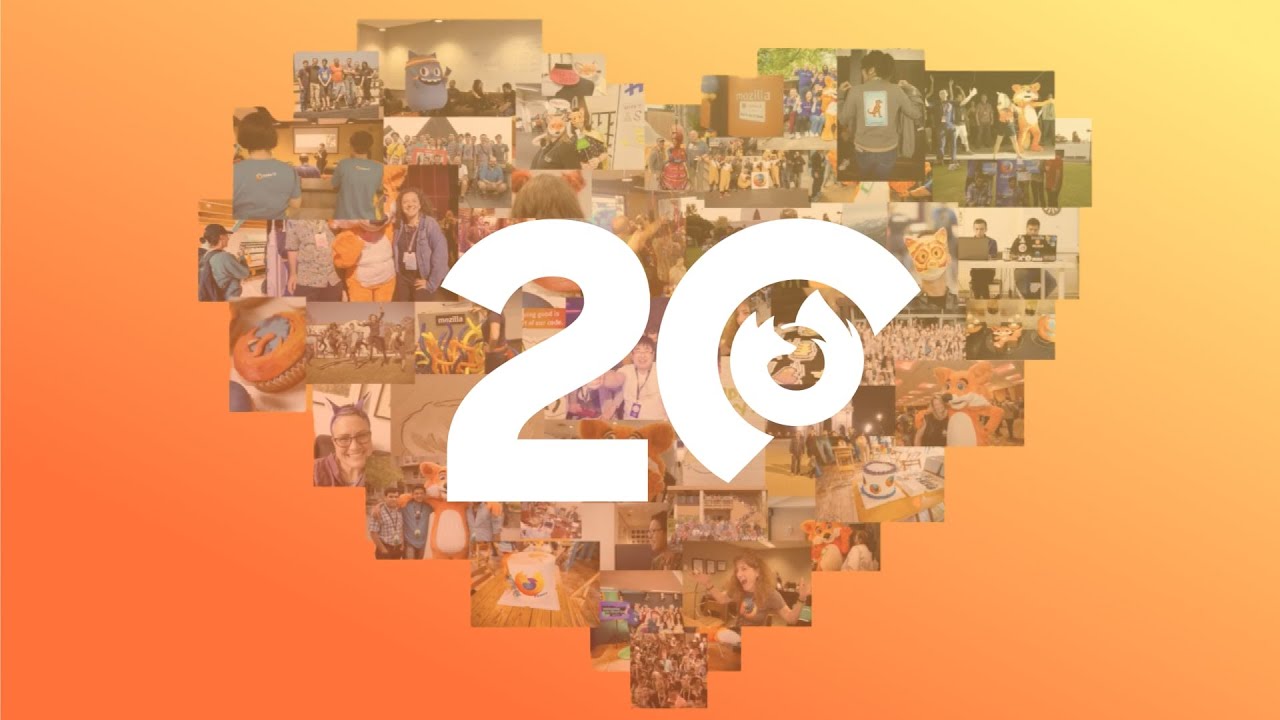- 50 Posts
- 40 Comments

 40·3 months ago
40·3 months agoThe reasons for this shift in budget away from funding Free Software and the NGI initiative seems to be an allocation of more funds for AI, leaving internet infrastructure by the wayside. Meanwhile, the EC has thus far declined to comment to share its official reasoning for striking this funding from its budget.
Sigh. It appears that they are chasing after the latest “shiny” thing instead of investing in existing infrastructure. Not surprising, but disappointing.
I agree that the amount of work for many students can get quite out of hand and to be honest when I first started teaching, I was pretty guilty of having very work intensive courses.
That said, over the years, I’ve worked to streamline my courses to only have what I believe to be absolutely critical to learning and have added a lot of scaffolding and automated tests (for immediate results). In general, I try to have no busy work and make sure everything assignment is meaningful (as much as it can be anyway).
Additionally, because I understand that sometimes life happens, I have built-in facilities for automate extensions for assignments and even have a system for dropping certain homeworks.
This not to say that there isn’t work in my classes… it’s just that the work is intended to be relevant and reasonable, which most students seem to agree with these days.
I think students should be expected to work less over a longer period of time.
I think this would be a great idea. Or rather, I think it would be great to allow students to learn at different rates… some may want to go faster, some may want or need to go slower.
I think the modern course-based education system is often too rigid and not flexible enough to adequately accommodate the needs of students with different experience levels, resources, or constraints. Something like a Montessori model would be a lot better IMHO.
First off, 10 is an integer square root. Of 100.
Right, what I was trying to say is that 10 itself is not a perfect square. You cannot take the square root of 10 and get an integer (ie. 1, 4, 9, 16, 25, etc.).
I was told by multiple English teachers (including the head of the department) that I was a math student and should never attempt to write because I saw through the regurgitation assignments, didn’t agree with teacher assessments of what Dickens “was trying to do” and had zero interest in confirming their biases.
I think that is unfortunate and probably inappropriate. I try to avoid classifying students as particular types and generally try to encourage them whenever possible to pursue whatever their interests are (even if I disagree or don’t have the same interest myself).
College coursework on the whole is a waste of time reinventing wheels. I don’t need to spend a couple of weeks working up to “Hello, world!” in C and as such left CS as a major my first quarter at uni.
There is a reason for reinventing wheels; it is to understand why they are round and why they are so effective. To build the future, it helps to understand the past.
That said, perhaps the course was too slow for you, which is understandable… I frequently hear that about various classes (including ones I’ve taught).
But teachers do this shit every day, year after year, and we blindly say they’re doing important work even as they discourage people from finding their path and voice, because god forbid a 16-year-old challenges someone in their 50s.
Again, I think you’ve had an unfortunate experience and I think it’s a good thing to challenge your teachers. I certainly did when I was a student and I appreciate it now when students do that with me. I recognize that I am not perfect nor do I know everything. I make mistakes and can be wrong.
I wish you had a more supportive environment in secondary school and I have a better understanding of your perspective. Thanks for the dialogue.

 11·3 months ago
11·3 months agoSure, some people acquire the capability through repetition. But all that matters in the end is if you are capable or not.
I guess the question is how do you develop that capability if you are cheating or using a tool to do things for you? If I use GrubHub to order food or pay someone else to cook for me, does it make sense to say I can cook? After all, I am capable of acquiring cooked food even though I didn’t actually do any of the work nor do I understand how to well, actually make food.
The how is relevant if you are trying to actually learn and develop skills, rather than simply getting something done.
No, the point is to get an irrelevant piece of paper that in the end doesn’t actually indicate a persons capabilities.
Perhaps the piece of paper doesn’t actually indicate a person’s capabilities in part because enough students cheat to the point where getting a degree is meaningless. I do not object to that assessment.
Look, I’m not arguing that schooling is perfect. It’s not. Far from it. All I am saying is that if your goal is to actually learn and grow in skill, development, and understanding, then there is no shortcut. You have to do the work.

 11·3 months ago
11·3 months agoSure. If you do enough basic math, you start to see things like how 2/8 can be simplified to 1/4 or you recognize that 10 is not a perfect square root or how you could reorder some operations to make things easier (sorry, examples from my kids). Little things like that where you don’t even think about it… it becomes second nature to you and that makes you a lot faster because you are not worrying about those basic ideas or mechanics. Instead, you can think about more complicated things such as which formulas to apply or the process to compute something.
As another example, since I teach computer science, a lot of novice students struggle with basic programming language syntax… How exactly do you declare a variable? What order do things go? How does a for loop work? Do you need a semicolon or parentheses, etc. If you do enough programming, however, these things become second nature and you stop thinking about it. You just seemily, intuitively, know these things and do them naturally without thinking, even though when you first started, it was really complicated and daunting and you probably spent a lot of time constructing a single line of code.
Once you develop a foundation however, you don’t need to worry about these low-level things. Instead you worry about high-level issues such as how to organize larger pieces of code into functions or how to I utilize different paradigums, etc.
This is why a basketball player, for instance, will shoot thousands of shots in practice or why a piano player will play a piece over and over for many hours. It’s so they don’t have to think about the low-level mechanics. It becomes muscle memory and it’s just natural to them.
I hope that makes sense.

 12·3 months ago
12·3 months agoThanks for the thoughtful response.
Using AI to answer a question is not necessarily preventing yourself from learning and developing mastery and understanding. The use of AI is a skill in the same way that any ability to look up information is a skill. But blindly putting information into an AI and copy/pasting the results is very different from using AI as a resource in a similar way one might use a book or an article as a resource.
I generally agree. That’s why I’m no longer banning AI in my courses. I’m allowing students to use AI to explain concepts, help debug, or as a reference. As a resource or learning aid, it’s fine or possibly even great for students.
However, I am not allowing students to generate solutions, because that is harmful and doesn’t help with learning. They still need to do the work and go through the process, AI assisted or not.
This is a particularly long winded way of pointing out something that’s always been true - the idea that you should learn how to do math in your head because ‘you won’t always have a calculator’ or that the idea that you need to understand how to do the problem in your head or how the calculator is working to understand the material is a false one and it’s one that erases the complexity of modern life. Practicing the process helps you learn a specific skill in a specific context and people who make use of existing systems to bypass the need of having that skill are not better or worse - they are simply training a different skill.
I disagree with your specific example here. You should learn to do math in your head because it helps develop intuition of the relationship between numbers and the various mathematical operations. Without a foundational understanding of how to do the basics manually, it becomes very difficult to tackle more complicated problems or challenges even with a calculator. Eventually, you do want to graduate to using a calculator because it is more efficient (and probably more accurate), but you will be able to use it much more effectively if you have a strong understanding numbers and how the various operations work.
Your overall point about how a tool is used being important is true and I agree that if used wisely, AI or any other tool can be a good thing. That said, from my experience, I find that many students will take the easy way out and do as you noted at the top: “blindly putting information into an AI and copy/pasting the results”.

 25·3 months ago
25·3 months agoThe how is irrelevant.
What I usually tell students is that homework and projects are learning opportunities. The point isn’t for them to produce a particular artifact; it’s to go through the process and develop skills along the way. For instance, I do not need a program that can sort numbers… I can do that myself and there are a gazillion instances of that. However, students should do that assignment to practice learning how to code, how to debug, how to think through problems, and much more. The point isn’t the sorting program… it’s the process and experience.
How do you get better at say gymnastics? You do a bunch of exercises and skills, over and over.
How do you get better at say playing the guitar? You play a lot songs, over and over.
How do you get better at say writing? You write a lot, some good, some bad, over and over.
To get better at anything, you need to do the thing, a lot. You need to build intuition and muscle memory. Taking shortcuts prevents that and in the long run, hurts your learning and growth.
So viewing homeworks as just about the artifact you submit is missing the point and short-sighted. Cheating, whether using AI or not, is preventing yourself from learning and developing mastery and understanding.

 21·3 months ago
21·3 months agoMaybe. It is true that people who would have cheated in the past are now just using AI in addition to the previous means. But from my experience teaching, the number of students cheating is also increasing because of how prevalent AI has become and how easy it is to use it.
AI has made cheating more frictionless, which means that a student who might not have say used Chegg (requires some effort) or copied a friend (requires social interaction) in the past, can now just open a textbox and get a solution without much effort. LLMs have made cheating much easier, quicker, and safer (people regularly get caught using Chegg or copying other people, AI cheating can be much harder to detect). It is a huge temptation where the [short-term] benefits can greatly dwarf the risks.

 5·3 months ago
5·3 months agoWhile I’m not a fan of the AI generated articles or images, I think the overall service of aggregating and publishing local events is really useful.
I was actually trying to do something like this myself the other day by looking for RSS/Atom feeds of local organizations to keep track of different community events, but most do not publish anything in a consistent manner.
Having some AI bots scraping the various sites and synthesizing the events into some sort of standard feed would actually be great.
Could be what communities you are subscribed to. I run a small instance with about 3ish users, and here are my stats after about 3 months as well:
9.5G ./pictrs 12G ./postgres 8.0K ./lemmy-uiWhat version of lemmy are you using? A recent update also introduced some space savings in the database (I think).

 1·1 year ago
1·1 year agoIt comes down to bridging. I use discord and slack via IRC bridges. I actually use slack a lot (for work), but primarily through irslackd. I do not use slack for anything outside of work and would prefer to keep it that way.
For discord, I primarily use it through bitlbee-discord. With this bridge/gateway, I can actually chat on different servers at the same time, so I wouldn’t mind this for different communities if I had to.
Matrix is last because I don’t really have a good briding solution for it and it just seems clunkier than the other two for me.

 3·1 year ago
3·1 year agoI would be less willing to contribute/participate in discussions if newer platforms such as discord, slack, or matrix are used. Of those three, I would prefer discord, then slack, then matrix.
As it is, I only use Slack for work, and mostly avoid discord and matrix except for a few mostly dead channels/servers.
I understand that this is not the mainstream view and that most people prefer the newer platforms, but personally, I am not a fan of them nor do I use them.

 2·1 year ago
2·1 year agoI’m fine with IRC (actually prefer it as I use it all the time).
I agree with others that a mailing list is more intimidating and more of a hassle, but if there is a web archive, I can live with that. It wouldn’t be my preference, but it wouldn’t be an insurmountable barrier (I have contributed to Alpine Linux in the past via their mailing list workflow).
Probably a custom theme.
It’s Mozilla’s mastodon instance: https://blog.mozilla.org/en/mozilla/mozilla-social-mastodon-private-beta-announcement/
I wish they had a mastodon account… they have https://mozilla.social, but they don’t have an account there… which is bizarre.
They do have an account for Firefox Nightly and Firefox Dev Tools account though.

 29·1 year ago
29·1 year agoI think this is the author being humble.
jmmvis a long time NetBSD and FreeBSD contributor (tmpfs, ATF, pkg_comp), has worked as a SRE at Google, and has been a developer on projects such as Bazel (build infrastructure). They probably know a thing or two about performance.Regarding the overall point of the blog, I agree with
jmmv. Big O is a measure of efficiency at scale, not a measure of performance.As someone who teaches Data Structures and Systems Programming courses, I demonstrate this to students early on by showing them multiple solutions to a problem such as how to detect duplicates in a stream of input. After analyzing the time and space complexities of the different solutions, we run it the programs and measure the time. It turns out that the O(nlogn) version using sorting can beat out the O(n) version due to cache locality and how memory actually works.
Big O is a useful tool, but it doesn’t directly translate to performance. Understanding how systems work is a lot more useful and important if you really care about optimization and performance.

 4·1 year ago
4·1 year agoI have experienced Firefox take a long time to load (a minute or more) the first page after it has been suspended or not used in a while. For instance, if I am in my chat app (weechat-android) and I click a link to open it in Firefox, it may take a minute or more to load. However, after that initial load, it is mostly OK and behaves normally.
It’s annoying and sucks… but I can live with it.
















Oh. I’m sorry if this was discussed previously… I only returned to lemmy a few weeks ago and didn’t see the story covered yet.